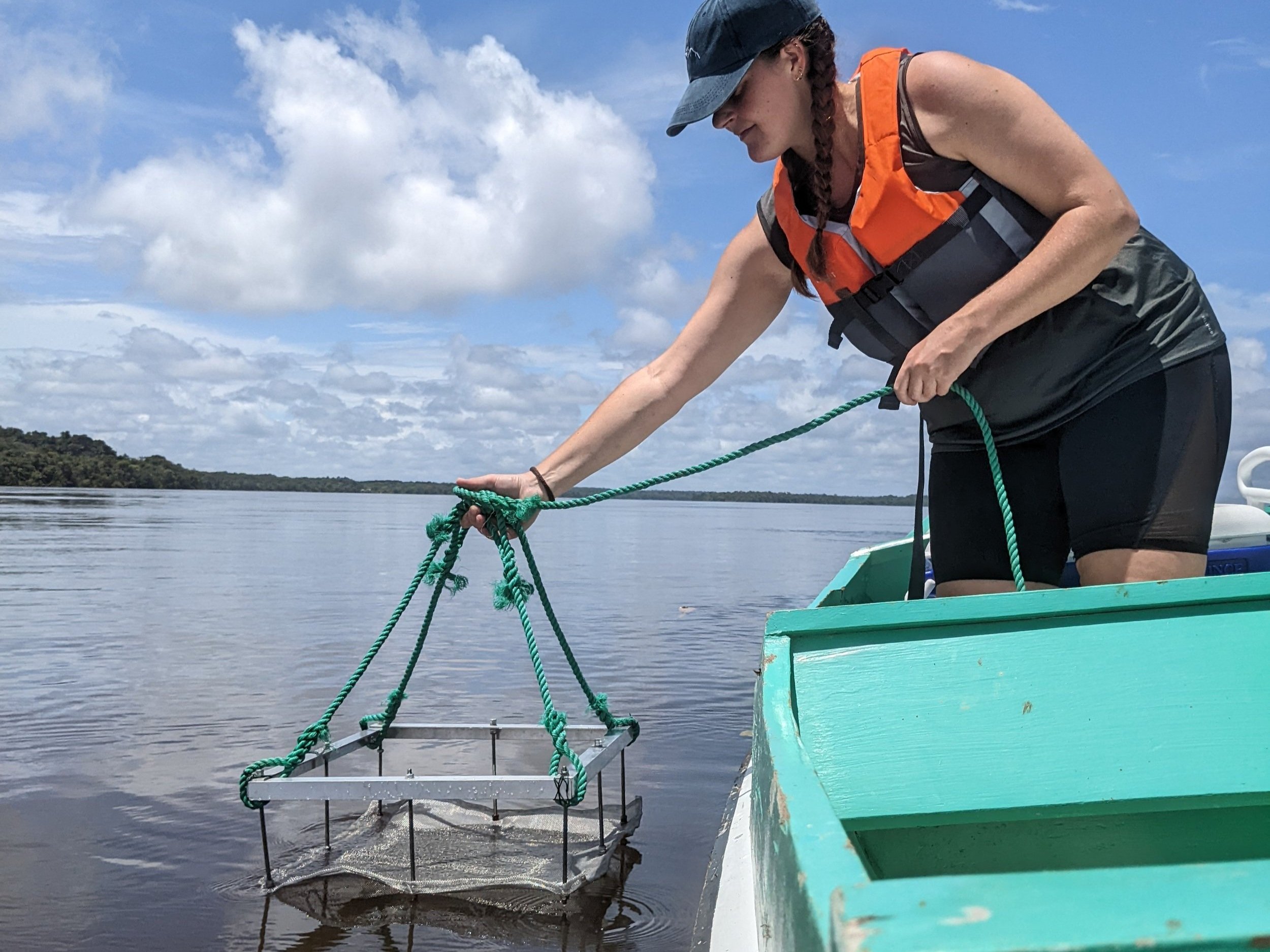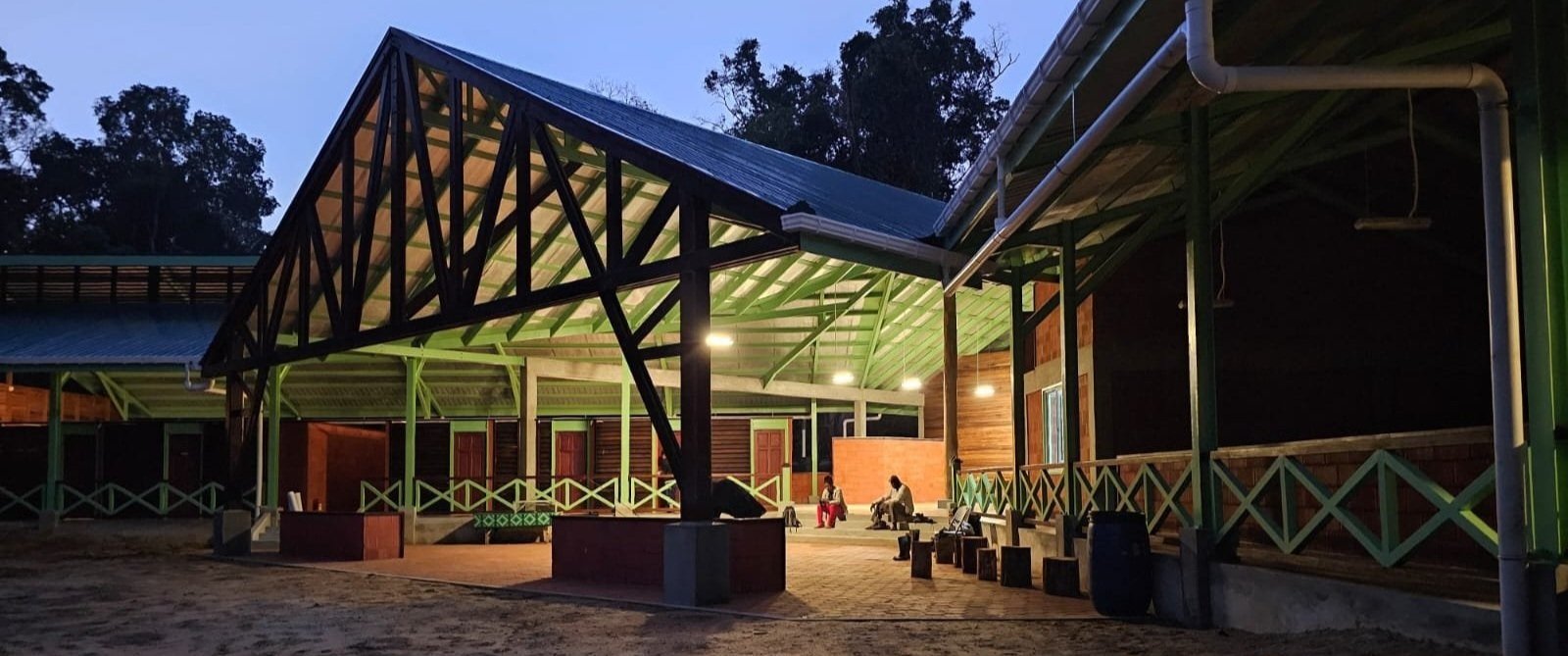
Our Story
A beacon of hope for biodiversity, conservation and education
Sophia Point is an accessible research and education centre in Guyana, South America, just over two hours from the capital city, where students can study, understand and champion the rainforest, alongside local and indigenous environmental experts and leading scientists.
85% of Guyana’s land is covered by rainforests and, as part of the Guiana Shield (130 million hectares of rainforest extending from French Guiana to Colombia) they play a crucial role in protecting the broader Amazon. Losing Guyana’s rainforests would accelerate the collapse of the world’s largest tropical rainforest and with it, crucial environmental and scientific benefits for people and planet.
Rainforests are our greatest defence against climate change and indigenous peoples have helped ensure Guyana's forest loss remains very low by protecting and working with their environment for thousands of years. However, the country is now at a critical juncture as climate disruption combined with the drive for gold, timber and oil could threaten the environment as infrastructure and roads expand.
We need urgent action to protect and learn from Guyana’s rainforests, but until now, local scientists and researchers have had little in the way of access and facilities to study the rich biodiversity on their doorstep. In fact, the last national study of biodiversity was conducted almost 30 years ago.
“We’re thrilled that the building of Sophia Point Rainforest Research Centre has been completed, and that it is already playing a part in furthering scientific study and exploration of the rainforest. We look forward to learning from and sharing the environmental and scientific insights from the students and communities involved.”
In 2019, British parliamentarian with Guyanese heritage, David Lammy MP, and artist, Nicola Green, set out to contribute to education, science and conservation in Guyana by building and establishing an accessible rainforest research centre at Sophia Point. Thanks to our partnership with the University of Guyana, the support of scientists and philanthropists globally, and the hard work of founding Centre Director Sam Airey, local Amerindian communities and Nicola Green, Chair of Trustees, that vision has now become a reality.
The sustainable off-grid centre, completed in March 2024, provides the University of Guyana with its first permanent, accessible, low-cost field site for students studying environmental sciences. Built by a local team, mainly from the neighbouring indigenous community of River’s View, its facilities include accommodation for 24 students, a field laboratory, classroom, dining space and four kilometres of rainforest trails. Sophia Point has already hosted over sixty students – supporting their studies on birds, mammals, insects, freshwater carbon and the impacts of mining on biodiversity. Conservation ecologist, Ailsa Henderson, who took over as Centre Director in 2024 is now leading the next phase of its development with a team of British and Guyanese trustees.
“Sophia Point is an opportunity to champion Guyana’s most important natural resources: its rainforest and its people. We hope it will help equip the next generation of Guyanese leaders with the skills to protect and champion their rainforest, and that together we can find the solutions to a sustainable future for both people and planet”
Sophia Point represents the opposite of parachute science. Its unique location, near the confluence of the Essequibo, Mazaruni and Cuyuni rivers, enables the study of a wide range of disciplines, and is an ideal setting for collaborative, interdisciplinary research, bringing together local communities, students and scientists from Guyana and beyond to monitor, study and learn from the rivers and rainforest.












